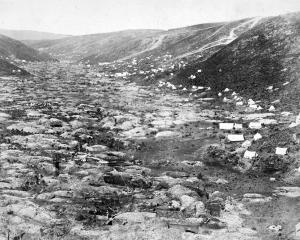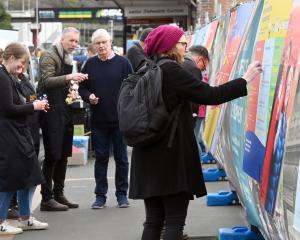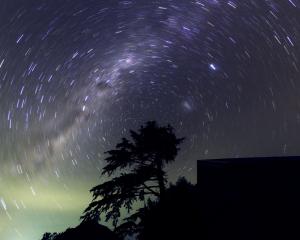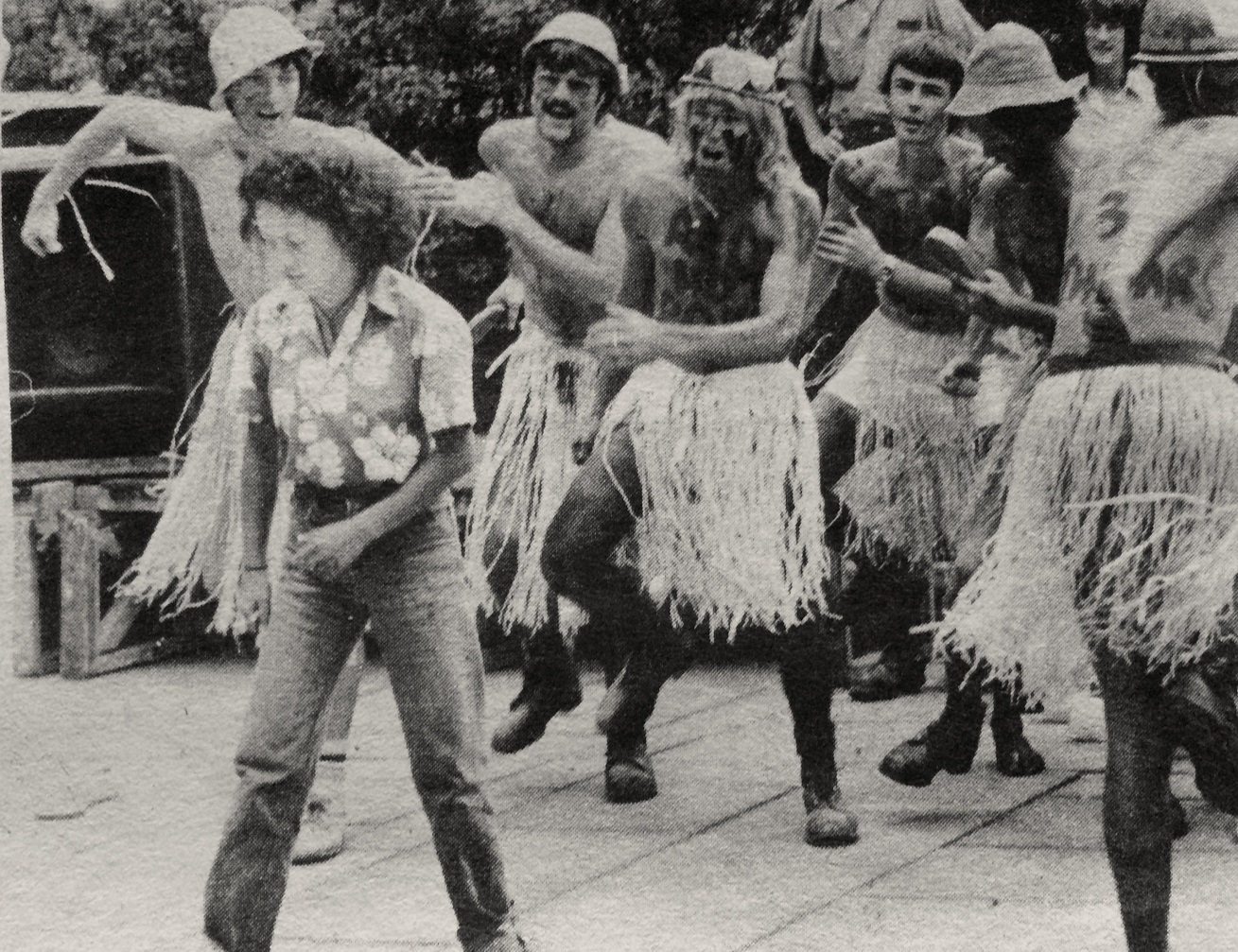
Ka Mate, a haka that needs no introduction in Aotearoa, rang out around the world after Te Pāti Māori MP Hana-Rawhiti Maipi Clarke lit up Parliament last year.
Her performance of Te Rauparaha’s haka during the Treaty Principles Bill’s first reading went viral, powered by the ihi and wehi of her tū.
Documentary maker Katie Wolfe says it is seared on her mind.
"It was an incredible moment."
Wolfe had more reason than most to note Maipi Clarke’s Bill-shredding challenge, as she is the maker of the documentary The Haka Party Incident, which returns to cinemas next week after screenings at last year’s Whānau Mārama New Zealand International Film Festival.
Her documentary recalls the moment in 1979 when a group of young Māori and Pasifika activists confronted the overwhelmingly Pākehā students of Auckland University’s engineering school as they prepared to perform a parody of Ka Mate, as part of an annual student celebration of boorish inebriation.
The galactic distance between the two performances could not be more stark — each somewhat emblematic of their time.
"Yeah, incredible to think," Wolfe says. "You can turn on McPhail and Gadsby and see them dressed up in grass skirts, you know, doing a fake haka. And then, flash forwards to last year, seeing this parliamentarian presenting her tono (request/demand) to the Parliament with what we call haka rangatira."
As part of the scene setting and contextualising in her Haka Party documentary, Wolfe shows clips of various ways in which Pākehā society once lampooned and denigrated haka, including on the likes of primetime TV skit comedy McPhail and Gadsby.
As much as the contrast with Maipi Clarke’s haka illustrates the progress that has been made in the intervening decades, Wolfe is acutely aware of the contested space into which her film is moving, in the wake of last year’s massive Hīkoi mō Te Tiriti and the roiling discomfort of the Bill’s ongoing select committee process.
"The film is coming out in quite extraordinary times," she says. "I don’t even know what to think about that."
Indeed the connections between then and now, the engineering students’ Haka Party of ’79 and the headline politics of 2024-25, pile one on top of the other, presenting simultaneously as coincidence and inevitabilities, and rounding out the picture of a country still coming to terms with its history of colonisation.
"There’s just so much that overlaps," the director confirms.
Wolfe (Ngāti Mutunga Ngāti Tama, Ngāti Toa Rangatira), well known to New Zealand audiences for her acting career across film, television and stage, began her deep dive into the Haka Party Incident, as it came to be known, back in 2008 after reading a short section on it in Ranginui Walker’s history Ka Whawhai Tonu Mātou: Struggle Without End. That research became a verbatim stage play, after Wolfe received a 2017 commission, and is now the film.
Among the more obvious bridges between then and now, the 1970s and today, is a common cast. Two of the young Māori activists who confronted the engineering students were Hone Harawira and Ben Dalton, who also appear in the documentary addressing politicians at Waitangi last year over the Treaty Principles Bill — collapsing time.
Dalton is now chief executive of the Waitangi Treaty Grounds.
"I’m sure people watching the film and being aware, really cognizant, of the present political moment, will see that the work still goes on. This is just a continuum," Wolfe says.
Knowing the history underlines why it is so important to challenge the Treaty Principles Bill, she says.
"I think it’s very timely."
It is easy for people to disengage with such issues, shying away from the potential for them to be divisive, she says.
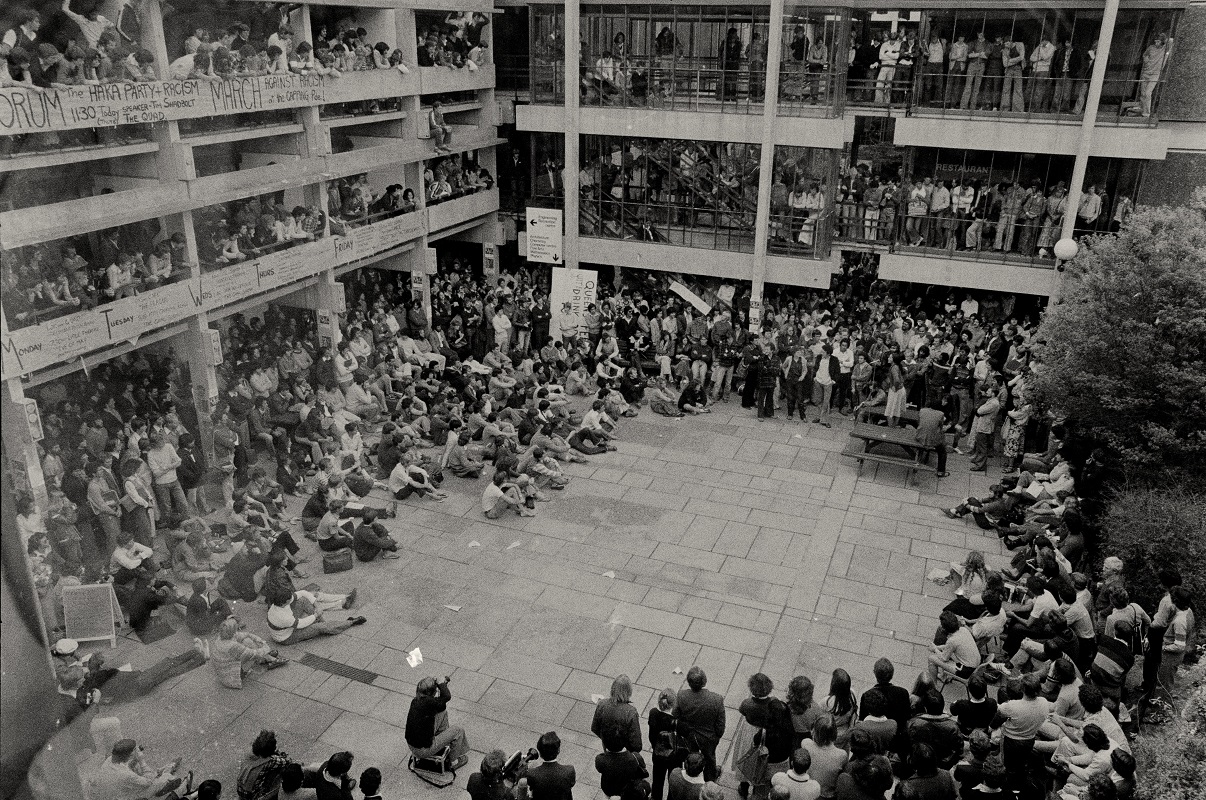
"And that’s what’s really positive. So, I see the activism around the Treaty Principles Bill as incredibly positive. It’s just so positive."
It’s clear, she says, that this legislation is not for us.
Things weren’t so clear back in the 1970s. Then, Dalton says in the film, he earned the beating of his life from police following the confrontation with the students.
As a result, members of the group, who took the name He Taua, would thereafter film themselves before protests so they could prove injuries they received had happened at the hands of police. Footage of that pre-protest precautionary ritual, featuring Dalton, is one of the more confronting moments of the film.
Among those facing up to the uncomfortable past are members of the engineering school class-of-’79.
Four of them face Wolfe’s camera, searching to understand themselves what they were doing and why.
The director says it does them much credit, that they were prepared to front up.
"It became the thing that you didn’t talk about. They hadn’t talked about it since it happened in 1979," she says.
"They were for the first time trying to remember back to when they were 17-18 years old ... what the hell went on that day.
"They know they’re on the wrong side of history here. So, you know, that’s not easy."
Their discomfort may well resonate with some others, she suggests.
"Yeah, I think some people do find resonance in their thoughts, going, ‘yes, that’s what I thought’, you know?"
But that allows for the realisation that it isn’t the person that is racist, she says.
"It’s the system. It’s the structures of society that we live inside."
The film also features anti-racism activist the late Mitzi Nairn, who pops up to explain how we all adjust to living inside the institutions of our time.
"You just adjust. It’s quite, I think for some people, that is quite revelatory, which is cool," Wolfe says.
While the former engineering students wrestle with the changes of the past 45 years, it’s clear from the historic footage of the He Taua members that they were always crystal clear about their goals and values — restoring the mana of Māori language and culture, of the haka.
It’s also clear that there was a considerable measure of bravery involved in their actions.
A photo of Hilda Halkyard-Harawira from a protest the year before, in 1978, shows the diminutive woman alone remonstrating with the grass-skirted engineering students.
"They had a photographer on that day, following the Haka Party around, and he caught that image of little Hilda. Because she’s little, she’s only five foot, I think, Hilda. And up she goes against — you know how grotesque it looks — the haka.
"Hilda is an indomitable force. She is one of my heroes. She has been on this kaupapa since she was at high school."





